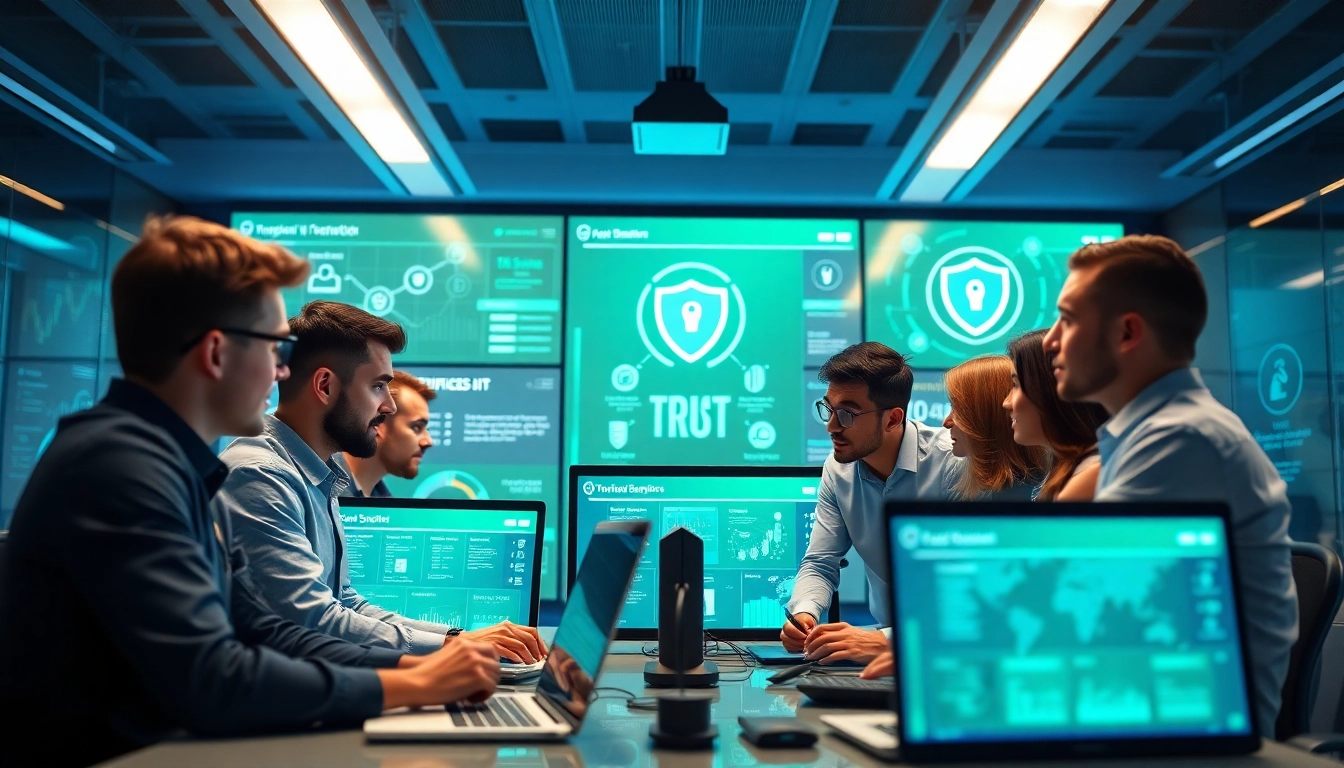1. Understanding Cybersecurity Certifications
1.1 What Are Cybersecurity Certifications?
Cybersecurity certifications are formal credentials awarded to individuals who demonstrate specific knowledge and skills in the field of cybersecurity. They validate a professional’s expertise in various aspects of cybersecurity, including risk management, security protocols, incident response, and ethical hacking. With the rapid increase in cyber threats, these certifications are essential for professionals aiming to establish or enhance their credibility in the cybersecurity domain.
1.2 Why Cybersecurity Certifications Matter
The importance of cybersecurity certifications cannot be overstated in today’s digital landscape. As organizations increasingly rely on technology, the demand for skilled cybersecurity professionals has skyrocketed. Certifications not only provide prospective employers with assurance of a candidate’s capabilities but also promote a culture of continuous learning within the industry. For individuals, obtaining a certification often represents a commitment to professional development and an understanding of current best practices in cybersecurity.
1.3 Overview of Popular Certifications
There are several well-regarded cybersecurity certifications. Some of the most sought-after include:
- CompTIA Security+
- Certified Information Systems Security Professional (CISSP)
- Certified Ethical Hacker (CEH)
- Certified Information Security Manager (CISM)
- Certified in Risk and Information Systems Control (CRISC)
Each certification focuses on different aspects of cybersecurity, catering to various roles and responsibilities within the profession. For detailed information about these cybersecurity certifications, continue exploring this comprehensive guide.
2. Key Certifications for Aspiring Professionals
2.1 CompTIA Security+ Certification Overview
The CompTIA Security+ certification is a foundational credential that covers essential principles for network security and risk management. It is designed for individuals aiming to start a career in cybersecurity, making it one of the first certifications often pursued. The certification exam tests knowledge in areas such as threats, vulnerabilities, and risks, as well as architecture and design, implementation, operations and incident response, and governance, risk, and compliance.
2.2 Certified Information Systems Security Professional (CISSP)
The CISSP is an advanced certification recognized globally as a standard for evaluating information security professionals’ competency. Offered by (ISC)², this certification is ideal for experienced security practitioners responsible for designing, implementing, and managing a best-in-class cybersecurity program. The exam covers a broad spectrum of topics including security and risk management, asset security, security engineering, communication, and network security, as well as security assessment and testing.
2.3 Certified Ethical Hacker (CEH) Certification
The CEH certification is tailored for individuals looking to become skilled ethical hackers or penetration testers. Offered by the EC-Council, this certification teaches professionals how to think like a hacker and proactively identify vulnerabilities within information systems. The CEH exam emphasizes practical skills required to assess the security posture of an organization and keep data secure from potential intruders. It covers various attack vectors, tools, and countermeasures, giving certification holders a competitive edge in the job market.
3. Benefits of Obtaining Cybersecurity Certifications
3.1 Career Advancement Opportunities
Obtaining cybersecurity certifications often translates into significant career advancement opportunities. Certification holders are not only more likely to be hired but also tend to rise faster through organizational ranks. Many employers actively seek candidates with certifications as they offer tangible evidence of skills and commitment to the profession. Additionally, specific certifications may lead to job roles with greater responsibilities, providing avenues for leadership and specialization in niche areas within cybersecurity.
3.2 Increased Earning Potential
According to various industry reports, such as those from (ISC)² and the Global Knowledge, professionals with cybersecurity certifications typically enjoy higher salaries compared to their non-certified peers. Data suggests that certified cybersecurity professionals can earn salaries up to 20% higher, depending on the certification obtained and the level of experience. As the cybersecurity field continues to grow, the premium on certified experts will likely increase, making certifications not just a learning tool but also a valuable financial investment.
3.3 Enhanced Professional Credibility
Having recognized certifications not only builds personal credibility but also enhances the entire cybersecurity profession. Certifications indicate that an individual has taken the necessary steps to acquire specific knowledge and has committed to continuing education, which is vital in such a rapidly evolving field. This level of professionalism helps reinforce trust with clients, employers, and stakeholders, which is crucial when dealing with sensitive data and systems.
4. Preparing for Certification Exams
4.1 Study Resources and Tools
Preparing for cybersecurity certification exams requires a targeted approach utilizing a variety of study resources. Many candidates find value in a combination of study guides, online courses, video tutorials, and textbooks. Resources like CompTIA’s own materials, Cybrary, and Udemy offer extensive content geared towards different learning styles. Additionally, attending instructor-led workshops and webinars can provide insights into exam structure and subject matter.
4.2 Practice Tests and Exam Strategies
Taking practice tests is one of the most effective methods for gauging preparedness for any certification exam. Practicing with mock exams helps candidates familiarize themselves with the exam format and types of questions. Sites such as MeasureUp and Transcender offer a range of practice tests for various certifications. One strategic tip is to focus on areas of weakness identified during practice tests, allocating more study time to those topics before the exam.
4.3 Joining Study Groups and Forums
Engaging in study groups and professional forums can greatly enhance the exam preparation experience. Platforms such as LinkedIn groups, Reddit communities, and dedicated Cybersecurity forums provide a space to collaborate, discuss complex topics, and seek advice from individuals who have already passed the certification exams. Sharing experiences and tips within these communities not only builds knowledge but fosters a sense of camaraderie among aspiring cybersecurity professionals.
5. Future Trends in Cybersecurity Certifications
5.1 Emerging Certifications in 2024
As the field of cybersecurity evolves, so too do the certifications that validate competencies in new areas. In 2024, we can expect a rise in certifications focusing on areas such as cloud security, AI security, and IoT security. Organizations are increasingly recognizing the necessity of protecting emerging technologies, creating opportunities for professionals to specialize further. Certifications from vendors like Google, Amazon, and Microsoft are likely to increase in relevance as cloud technologies dominate the digital landscape.
5.2 The Role of Continuous Education
In the fast-paced world of cybersecurity, continuous education will play a pivotal role in maintaining certifications. Many certification bodies now require ongoing professional education credits to renew credentials. This ensures that cybersecurity professionals stay updated with current threats and security practices. Engaging in regular training sessions and completing newest courses will be essential for those seeking to retain relevancy and leadership within the industry.
5.3 Government and Industry Standards Influencing Certifications
Government regulations and industry standards will continue to exert significant influence over cybersecurity certifications. As various agencies push for stricter security measures, certifications that align with compliance requirements—such as GDPR or HIPAA—will become prominent. Professionals will need to be aware of these evolving standards to ensure they are adequately prepared for roles requiring compliance knowledge and management.



